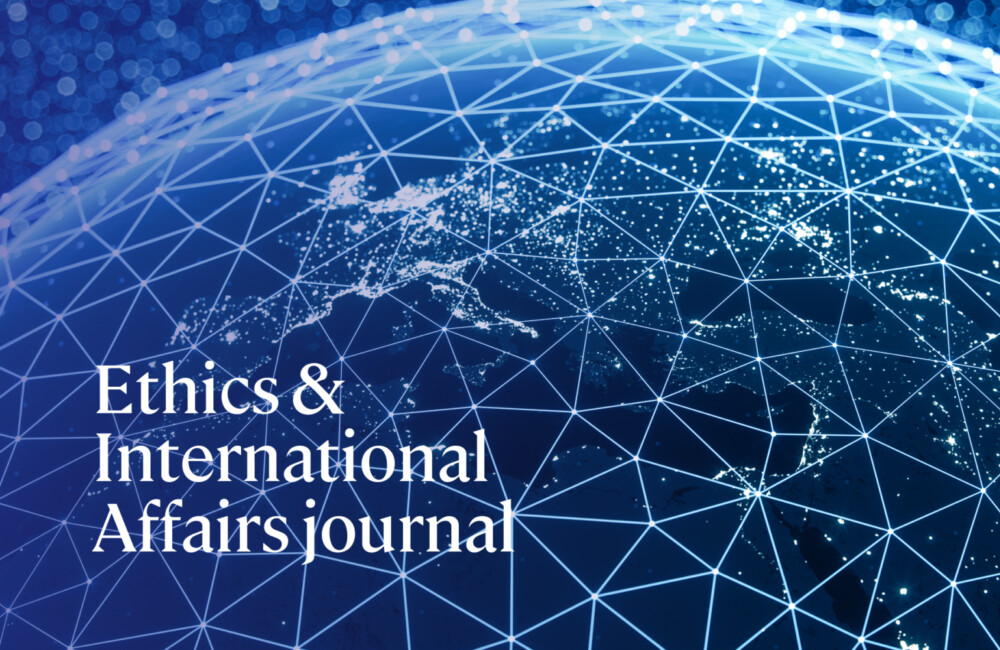Power and Responsibility: Building International Order in an Era of Transnational Threats, Bruce Jones, Carlos Pascual, and Stephen John Stedman (Washington, D.C.: Brookings Institution Press, 2008), 300 pp., $27 cloth.
What are the right kinds of institutions to order a globalized world, where transnational forces "that have stitched the world together can also tear it apart"? This question is addressed with notable range and sophistication in this collaborative work by three individuals with significant research and frontline experience in the area of global policy-making. The authors look to new principles (such as "responsible sovereignty"), to institutional-design innovations (such as a proposed new "G-16"), and, not least, to past experience across a variety of issue areas in answering how the global order can develop beyond its current default position, where international responses to challenges lack even the pretense of predictability and confidence, to a future governed by legitimate and well functioning multilateral institutions.
Specifically, the book offers analysis, evaluations, and prescriptions for change in the institutional arenas of climate change, nuclear proliferation, terrorism, civil and regional conflicts, economic inequality and insecurity, and natural and manmade biological threats—from pandemic disease to bioterrorism. In the latter area of "security in the biological century," for instance, Power and Responsibility measures the insufficiencies of the current international architecture (centering on the World Health Organization and the Biological Weapons Convention) against the bar set by responsible sovereignty; it then sets out how the proposed G-16 might work to improve the robustness of the architecture and to plug gaps such as local-capacity problems in the developing world. Here and throughout the authors are alert to the problems of mismatched perceptions and weak bonds of trust among nations that so standardly thwart proposals for meaningful international cooperation, and, moreover, they propose concrete measures to overcome such barriers to collective action—including the idea of replicating in the area of biotechnology the success of the Intergovernmental Panel on Climate Change in establishing a consensus-favoring global policy network.
Following the six chapters on specific areas of global responsibility, the book does not conclude without also addressing the acute dilemmas presented by the multidimensional security crisis in the Middle East. This "vital test case" for international order reminds us of the magnitude of the challenges for global institutional design in the twenty-first century, but also of the importance and urgency of meeting them.
What's Wrong with the European Union and How to Fix It, Simon Hix (Cambridge: Polity Press, 2008), 228 pp., $70 cloth, $23 paper.
This short and highly readable book, which began life as a series of policy papers written for the UK government, presents a case for democratic reform of the European Union. Starting from the premise that the EU is "more necessary than ever," Simon Hix shows how it can, and should, be improved. As the policy agenda has shifted from the creation of the internal market to the regulation of the market, diverging political views and interests mean that the EU integration has almost come to a halt; moreover, popular support for the EU is at an all-time low, partially because citizens do not know who in Brussels is to blame when they do not get the results they want. Hix argues that if the politics that play out behind closed doors in Brussels are not brought out in the open, the EU risks getting stuck in a decision making rut, losing legitimacy with citizens, and deepening its democratic deficit. Rather than pretend that European integration is a technocratic matter, EU leaders, therefore, need to engage in public debate over policy and to hold open contests in the election (direct or not) of national representatives to EU institutions. The winners would then enjoy a legitimate mandate to govern and thereby break the policy gridlock.
The wished-for result would be a "government-opposition" type of politics—in which a broad coalition of likeminded politicians would be in charge for a limited term—similar to that of most liberal democracies. Hix is optimistic that the goal of "limited democratic politics" at the EU level is attainable because the preconditions for it already exist. Integration has produced winners and losers across Europe and, crucially, a left-right ideological division in a pan-European debate over the future of economic and social policy. Looking in detail at the structures and procedures of the three major institutions—the Commission, the Council, and the Parliament—Hix finds that their current setup allows for the emergence of a cross-institutional majority coalition to govern at the European level. To achieve this, he advocates such reforms as increased transparency in Council procedures, an open contest for a Commission president, and more powers to the majority group in the parliament. Finally, to the usual objections that without the existence of a demos the goal of democracy is moot, Hix answers that it is precisely in the competition over political power that a European demos will be formed.
Forced to Be Good:Why Trade Agreements Boost Human Rights, Emilie M. Hafner-Burton (Ithaca, N.Y.: Cornell University Press, 2009), 232 pp., $40 cloth.
With this book Emilie Hafner-Burton upends our thinking about how social justice norms find their way into international regulations. She is struck by the "regulatory shift" of recent years, which has seen human rights regulations find their way into both U.S. and European agreements with their trading partners—what would have been an outlandish move mere decades ago. The 2004 U.S. free trade agreement with Singapore, for instance, obliges both parties to "strive to ensure" that the rights of workers and children are protected under domestic law, and establishes a joint committee to oversee the implementation of this social-justice-enhancing commitment.
Hafner-Burton's analysis aims to steal our eyes from the more conventional explanations of such developments—among them the notion that moral entrepreneurs, such as NGOs and activist citizens, have played the key, causal role in changing the face of global trade regulation. Rather than analyze only the changing preferences of policy-makers and the ethical actors that have been credited with influencing them, Forced to Be Good emphasizes the role of domestic political bargaining. While allowing that "interest-based motivations" can "benefit from morally persuasive overtones," and, moreover, that the inclusion of rights standards in trade agreements has at least led to important if modest improvements in human rights, the take-home message is that policy-makers "use" human rights to compete for political influence over trade policy.
Wired for War: The Robotics Revolution and Conflict in the 21st Century, P.W. Singer (New York: Penguin, 2009), 512 pp., $30 cloth.
It is hard to miss the subplot in P. W. Singer's thickly researched opus on warrior robots and unmanned military systems: While we are busy wiring advanced devices for combat, we are failing to deprogram our own destructive tendencies. His hope is that our morality will catch up with the accelerating changes in warfare. Singer also provides deep practical analysis of this ongoing revolution in military affairs, taking readers from the level of the combat unit all the way up to the starred generals. Already troops on the ground in Iraq are grateful to their robots for assistance in roadside bomb disposal, while the constant video stream from aerial drones has tempted commanders to micromanage battles and even pull the trigger on remote missile strikes.
Singer is especially convincing in his appeal for society to start codifying the ethics of these new technologies before mistakes are made. Two primary questions dominate the discussion: Will robots be autonomous? And will they be lethal? So far humans have remained in the decision loop, with the machine functioning mostly as a "warfighter's associate" that surveils the battlefield. But as sensors and effectors improve, it becomes possible for robots to detect enemy fire and return it. The complication here is that engineers must also code robots with the rules of engagement and the laws of war to prevent atrocities. Another looming unknown is the effect robotic and unmanned weapons will have on the likelihood of violence, whether between two great powers or in the asymmetrical realm of urban counterinsurgency. If these systems push down the cost of warfare in terms of blood and treasure, public resistance to conflict may decrease. Meanwhile, terrorists may be more motivated to strike an enemy's home soil if they have fewer opportunities to harm human soldiers in their own territories.
Technology has a history of distancing combatants from each other, and robots continue this psychological and physical trend, allowing a soldier to see his victim but experience none of the analogous risk. Is sending a robot to do a soldier's job a cowardly war by proxy? Could a war where one side is unwilling to sacrifice lives ever be just? Singer rightly asks whether these technologies will prove "too difficult and abhorrent to deal with," warranting an outright ban.


